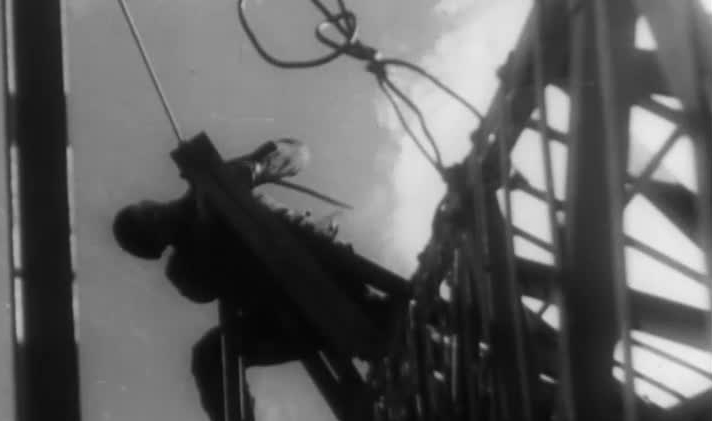
BBC - Droitwich
Free 14-day trial, then just £6.99 per month.
Please enter a valid email address
By entering your email address you are indicating that you have read and agree to the terms of use and privacy policy.
Free 14-day trial, then just £6.99 per month.
Get 14 days free
The building and launch of a new long-wave radio transmitter - just as the TV age is about to be born.
Even as it geared up to launch its first television service in 1936, the BBC still saw radio as its key priority, as this efficient and informative account of the building and launch of a new long-wave transmitter shows. The new mast, at Droitwich in Worcestershire (more specifically, just outside the village of Wychbold), replaced the now-obsolete Daventry. It is still the BBC's most powerful long-wave transmitter.
Efficiently directed for the GPO Film Unit by Harry Watt, this can't quite match the GPO's classic (and rather better-funded) BBC - Voice of Britain, released the same year. But if you can get past the stiff narration by BBC announcer Stuart Hibbert - which makes today's 'BBC English' seem like broad Cockney - this is a genuinely enthralling documentary, describing a true triumph of British engineering. Among other eye-opening facts, we learn that a 300,000 gallon reservoir was needed to cool the six 175 horsepower (130 kW) valves; and that the conductivity of the soil was a key consideration. Most astonishing - and alarming - is the sequence showing the erection of the mast, 200 feet taller than any previous. This massive structure is put in place not by a crane, but by four 'top men' who, after a half-hour climb each day, work suspended on a single, small, wooden platform at the mercy of the winds. This government film is a public record, preserved and presented by the BFI National Archive on behalf of The National Archives, home to more than 1,000 years of British history.